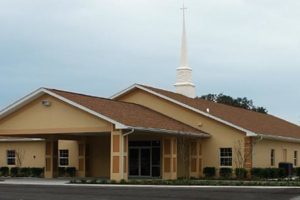Before my title causes you to misunderstand my position, I want to say a few things. I like guns. I really do. It is part of the reason that I have a concealed weapons permit. More then that, I believe in self-defense. If someone enters my home to harm either myself or my soon to be wife, I will dispense the appropriate deadly force. Yet my belief in the use of force in one area of life does not mean I believe force is a viable option in another realm of my life. The question of deadly force seems to have always been an all-or-none platitude. You are either in favor of force in all situations or against it. However, I believe the two-kingdom theological position allows for a mixed ruling: The use of deadly force in the civil kingdom but the rejection of it in the spiritual kingdom.
Some, especially those who live in the city, will find this article most peculiar. It has been my experience that people in the city either don’t understand guns or the people who would even suggest using them, under any circumstance, against another human being. As such this article is primarily written to those who find themselves in more country churches. Often times these churches sincerely wrestle through the issue of whether to have a church “security team.” This team is often composed of a handful of armed men throughout the congregation. In a situation such as that which New Life Church found itself in during 2007, they would be called upon to kill a gunman who had entered the church.
When the dust settles, I believe the easiest way to arrive at a sound biblical answer on the question of security teams is to embrace the two-kingdoms doctrine, which adequately provides a framework for the use of deadly force in the civil kingdom but not in the spiritual kingdom. Or to put it another way, a framework which allows for the use of deadly force in the home but not in the church.
The Relevant Biblical Data
The biblical points that allow for some use of physical force in the civil kingdom derive their mandate from Paul’s famous discourse about civil government (Romans 13:1-7). But it also draws validation from the finer points of natural law and the nature of the civil kingdom. These points of natural law which point to the legitimacy of deadly physical force are aptly explained in early Reformed resistance writings (see Marian exile John Knox and French Huguenot Theodore Beza) and I need not elaborate here for our focus today is on deadly force in the church.
Three passages seem especially relevant for our current question. The first is Matthew 5:38-39. Here we read in part, “You have heard that it was said, ‘An eye for an eye and a tooth for a tooth.’ But I say to you, Do not resist the one who is evil. But if anyone slaps you on the right cheek, turn to him the other also.”
Jesus is laying out something important about Christian ethics. But how is this passage to be understood in light of other texts such as Romans 13:1-7? In a masterful piece entitled, Bearing Sword in the State, Turning Cheek in the Church: A Reformed Two-Kingdoms Interpretation of Matthew 5:38–42, David Vandrunen argues that these verses must be understood against the preceding portions of the Matthean corpus that emphasize “the kingdom of heaven” (Mat. 3:2; 4:17; 5:3; 5:10, 19-20). This is a message that is directed to those who are participants in the kingdom of heaven. Indeed the ethics provided in the Sermon on the Mount are of a heavenly nature. They are not of this age.[1] In Matthew’s gospel, while the ethics are of a heavenly nature, they are to be obeyed now by the unique spiritual body that is the inbreaking of God’s kingdom. And thus the call of Jesus has direct implication about how the church is to handle violence that comes toward it. Jesus’ answer is to turn the other cheek, “Do not resist.”
In organizing this text and others with the two-kingdom principle, we can see that this command applies to how we handle ourselves in church or the spiritual sphere while other texts that allow for the use of force can still find legitimacy and valuable usage outside of the church in the civil sphere.
Of additional relevance is a text from Isaiah in which we find that our savior was, “…oppressed, and he was afflicted, yet he opened not his mouth; like a lamb that is led to the slaughter, and like a sheep that before its shearers is silent, so he opened not his mouth” (Isaiah 53:7). This language is also echoed in Peter’s similar statements (1 Peter 2:22-23). Jesus himself lives out the very calling that he demands of his disciples. To pick up our cross and follow him means that we reject our right to self-defense when we are being persecuted in the spiritual kingdom.
Also deserving mention here is Jesus’ statements in John 18:36 in which he tells Pilate, “If my kingdom were of this world, my servants would have been fighting…” Jesus again reiterates two crucial features to aid the two-kingdom understanding of this matter. He states that his kingdom is not of this world! If his kingdom were of this world then his servants would bear the sword. But his kingdom is heavenly and thus his disciples live by kingdom ethics, like those described in the Sermon on the Mount. Again, this does not mean that the civil kingdom does not have a violent component to it. He is here talking about his kingdom, not the kingdoms of the earth.
Application
If I have not made it abundantly clear already, my intent in writing is to show that church security teams are ultimately unbiblical, as they have to circumvent numerous texts from Scripture, which show that Jesus’ followers are not to resist those who persecute them. Additionally, I would suggest that all men or women with a concealed weapons permit consider leaving their guns at home on Sunday morning lest they be tempted to go against Jesus’ commands in the heat of the moment.
This paradigm also reaches beyond church security teams. It can apply to the home. If someone were to come after me in my house because of my Christian faith, I would summarily, be called to non-resistance. However if someone were to come after me as a burglar or a murderer, I would be biblically allowed to resist.
While recognizing that there may be both grey areas and some practical difficulties in applying this two-kingdom’s principle, it is ultimately a surer path to biblical fidelity.
[1] I am heavily indebted to David VanDrunen for many insights discussed here on Matthew 5:38-42.





42 Comments
Leave your reply.